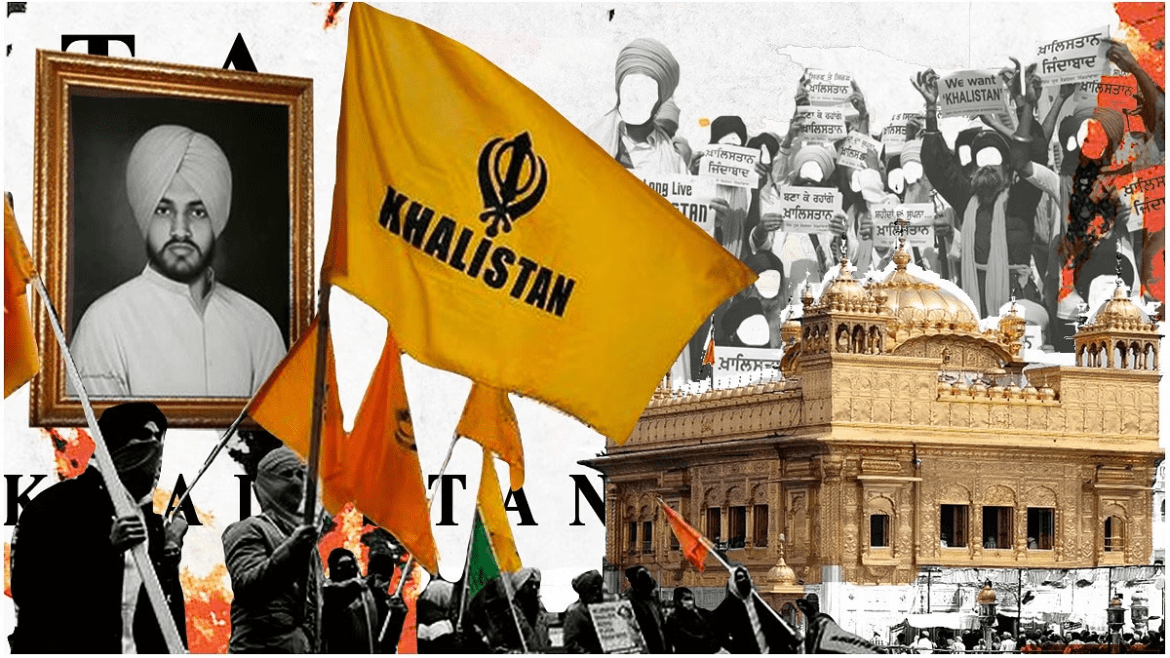AI Generated Summary
- This contradicts the claim made by Khalistan proponents that Sikhs as a community had ever ruled in any part of the Indian territory, except for a brief period in the second half of the year 1710 CE under the leadership of Banda Singh Bahadur.
- The main reason for the failure of the Khalistan movement is the awareness gained by people in Punjab through their experiences in the 1980s and 1990s, as well as their easy access to social media.
- The independent rule established by ten Sikh Misls in the 18th century CE and by Maharaja Ranjit Singh in the 19th century CE was essentially monarchical rule established by different family heads and did not represent community rule, theocratic or secular.
Political forces in India are faced with an enigmatic situation regarding the demand for Khalistan, which has been raised in various quarters in India and abroad since the early 1970s. The issue gains utmost significance in light of the disturbances created by Khalistan proponents abroad in March 2023, following government actions against a self-styled separatist Sikh leader named Amritpal Singh and his supporters in Punjab, India. Vigorous protests and ugly scenes were witnessed in prominent countries with a powerful Sikh diaspora community, such as the UK, the USA, Canada, and Australia. Sikhs, forming a majority community in the Indian state of Punjab, are also settled in different parts of India and abroad. Many of those settled abroad include Sikh radicals who have been granted political asylum by their respective host countries.
Sikhs are people whose religion is believed to have been founded by Guru Nanak and further preached by him and his nine successors. However, it has been largely established that none of the Sikh Gurus ever advocated for a separate and independent state for themselves or their followers. The independent rule established by ten Sikh Misls in the 18th century CE and by Maharaja Ranjit Singh in the 19th century CE was essentially monarchical rule established by different family heads and did not represent community rule, theocratic or secular. This contradicts the claim made by Khalistan proponents that Sikhs as a community had ever ruled in any part of the Indian territory, except for a brief period in the second half of the year 1710 CE under the leadership of Banda Singh Bahadur. Sikh community leaders often assert that they were promised a homeland within the Indian territory after the country gained independence, but they lack authentic records to substantiate this claim. From all perspectives, the Sikh community does not have a solid foundation to justify their demand for an independent homeland under the name of Khalistan. In fact, prior to the partition of the country in 1947 CE, Sikh political leaders had voluntarily chosen India over Pakistan. Fortunately, the majority of Sikhs spread throughout the Indian territory have accepted this situation and are not eager to support the demand for Khalistan. It is only fringe elements in India and abroad who have been excessively vocal in raising this demand, and this has mainly occurred after 1970 CE. Those abroad, with greater resources and facilities at their disposal, have become more aggressive in promoting the Khalistan agenda. However, their focus primarily remains on propaganda, although they occasionally engage in violent and disruptive activities. They are also generous in funding the separatists’ campaign back home.
In fact, the Khalistan phenomenon was initiated by unscrupulous but cunning political parties in India with the aim of creating polarization within the Indian community along communal lines. It was a conspiracy hatched to garner sympathy and votes during elections. It began with the launch of Jagjit Singh Chauhan, followed by Jarnail Singh Bhindranwale, Dal Khalsa, militant groups in the 1980s and 1990s, Simranjit Singh Maan, and the USA-based “Sikhs for Justice,” with Amritpal Singh being the most recent addition. However, Amritpal Singh’s campaign backfired, just as Chauhan’s government in exile did. Nevertheless, the other activists mentioned above may continue their propaganda work for some time. The saga of Amritpal Singh’s failure should serve as an eye-opener for everyone, marking the failure of the Khalistan conspiracy. The protests abroad will eventually prove more detrimental to the Khalistan cause and may become problematic for the protesters themselves, as the concerned governments will need to take strict measures to maintain domestic stability and safeguard their diplomatic relations with India, a prominent nation.
The main reason for the failure of the Khalistan movement is the awareness gained by people in Punjab through their experiences in the 1980s and 1990s, as well as their easy access to social media. Sikhs in Punjab also have concerns for members of their community settled in different parts of the country outside Punjab. It is crucial for the vested interests among politicians in India to exercise caution in the future.
The opinions expressed in this article are those of the author. They do not purport to reflect the opinions or views of Khalsa Vox or its members.




